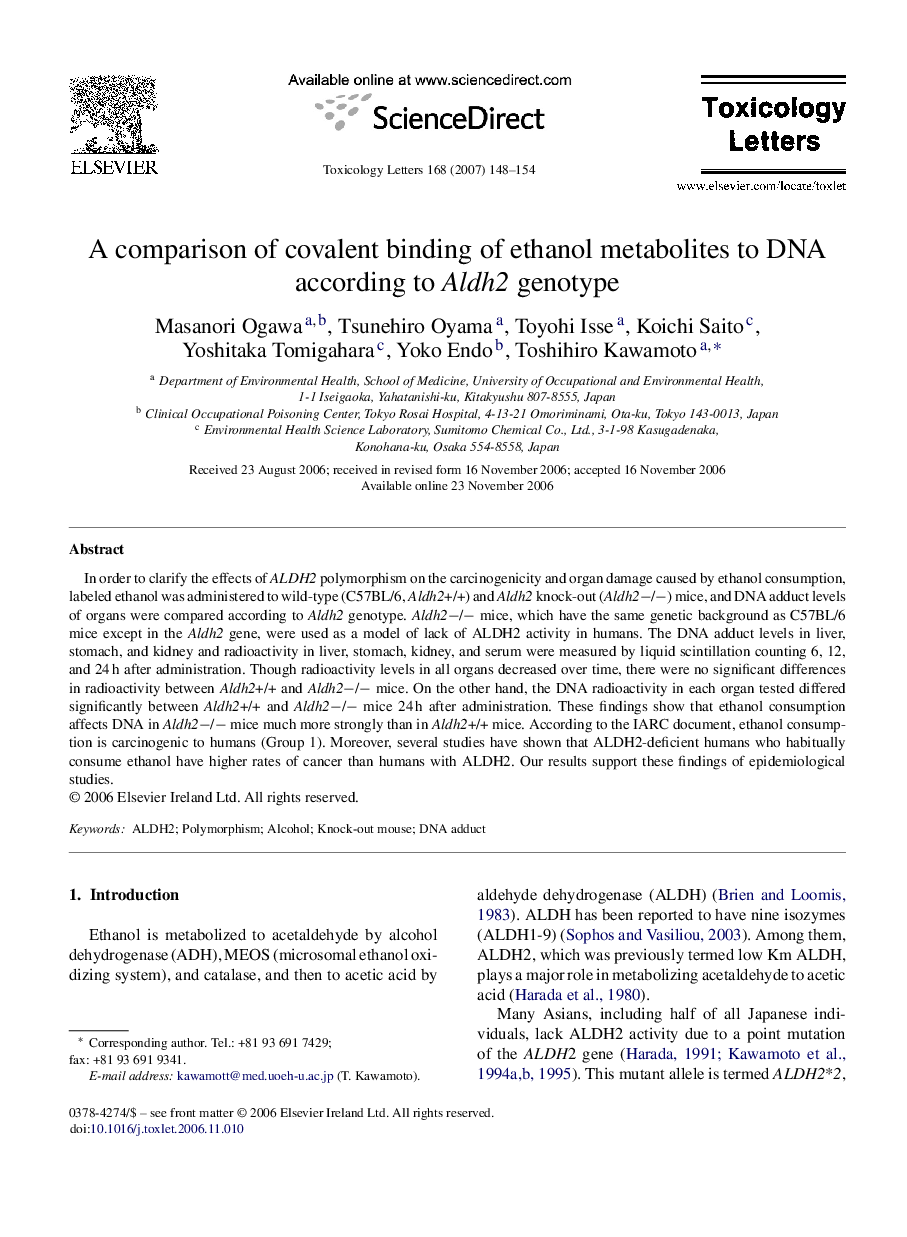| کد مقاله | کد نشریه | سال انتشار | مقاله انگلیسی | نسخه تمام متن |
|---|---|---|---|---|
| 2602303 | 1133391 | 2007 | 7 صفحه PDF | دانلود رایگان |

In order to clarify the effects of ALDH2 polymorphism on the carcinogenicity and organ damage caused by ethanol consumption, labeled ethanol was administered to wild-type (C57BL/6, Aldh2+/+) and Aldh2 knock-out (Aldh2−/−) mice, and DNA adduct levels of organs were compared according to Aldh2 genotype. Aldh2−/− mice, which have the same genetic background as C57BL/6 mice except in the Aldh2 gene, were used as a model of lack of ALDH2 activity in humans. The DNA adduct levels in liver, stomach, and kidney and radioactivity in liver, stomach, kidney, and serum were measured by liquid scintillation counting 6, 12, and 24 h after administration. Though radioactivity levels in all organs decreased over time, there were no significant differences in radioactivity between Aldh2+/+ and Aldh2−/− mice. On the other hand, the DNA radioactivity in each organ tested differed significantly between Aldh2+/+ and Aldh2−/− mice 24 h after administration. These findings show that ethanol consumption affects DNA in Aldh2−/− mice much more strongly than in Aldh2+/+ mice. According to the IARC document, ethanol consumption is carcinogenic to humans (Group 1). Moreover, several studies have shown that ALDH2-deficient humans who habitually consume ethanol have higher rates of cancer than humans with ALDH2. Our results support these findings of epidemiological studies.
Journal: Toxicology Letters - Volume 168, Issue 2, 30 January 2007, Pages 148–154